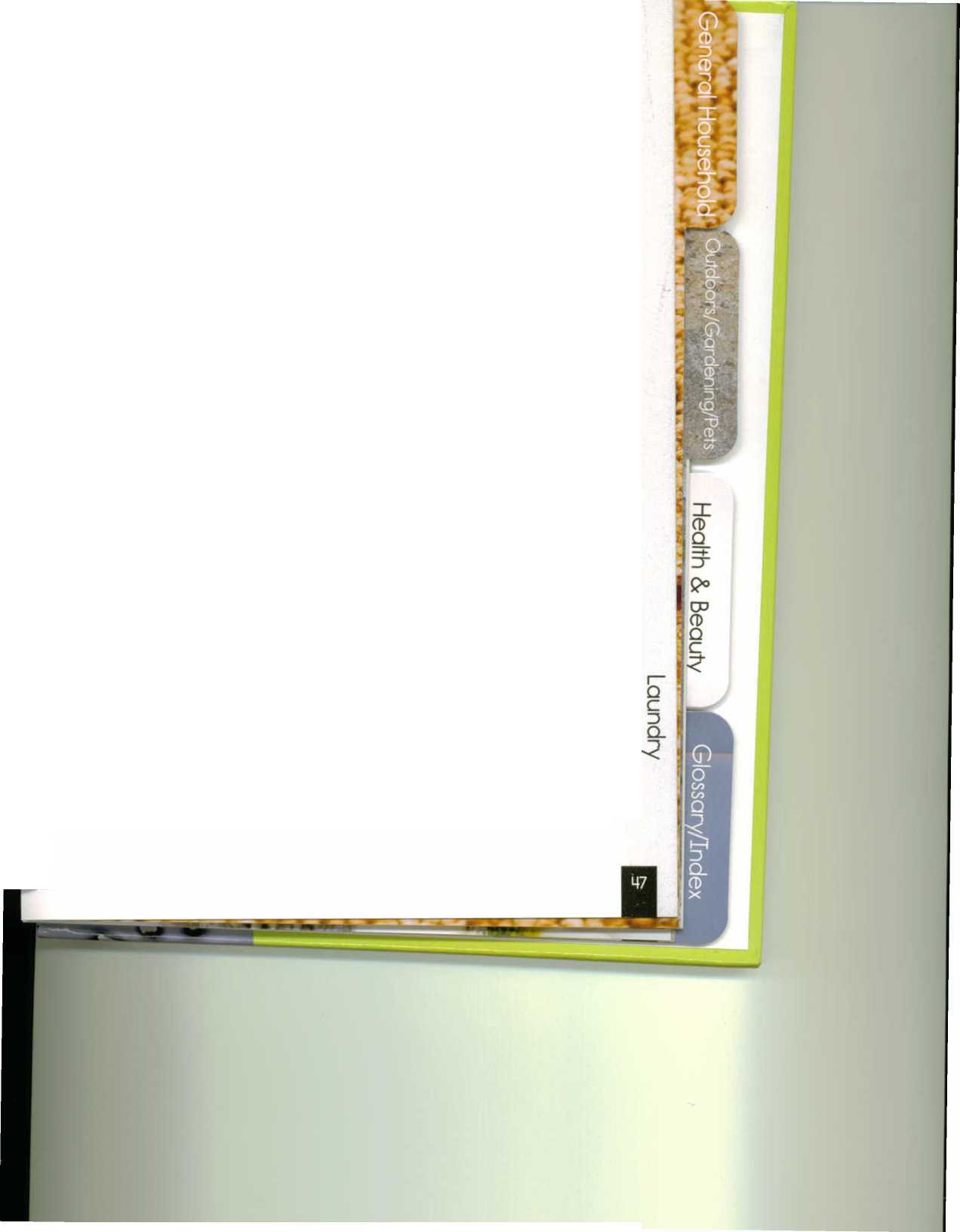47 (79)
Wherever possible, dry clothes outside as this will also cut electricity usage.

Laundry
Do not usc vinegar in your laundry ifyou are also using bleach as it will produce hannful vapours.
Use the washing machinę only when you have a fuli load and wherever possible wash at a maximum of 40°C as this will use up to a third less electricity.
Detergent is specially adapted to clean synthetic fabrics. and it has the added advantage of not leaving soil residues even in hard water. However detergents are generally derived from petrochemicals, and people sensitive to these compounds may find it hard to tolerate detergents or the fragrances they are scented with.
In addition. most detergents contain phosphates, which build up in streams and lakes and upset the natural balance in waterways. This causes blooms of algae which deplete the dissolved oxygen that fish need to live. Some detergents may even contain naphthalene or phenol, both hazardous substances.
An effective altemative to using detergents is to return to soap. Soap is an effective cleaner for natural fabrics. Ieaving such items as nappies softer than detergent can.
For cotton and linen, use soap to soften water. A cup of vinegar added to the wash can help keep colours bright. 30-85g/1/2-3/4 cup of baking soda will leave clothes soft and fresh smelling. Silks and wools may be hand washed with mild soap or a protein shampoo. down or feathers with mild soap or baking soda.
For synthetic fabrics or blends (including most no-iron fabrics). there are biodegradable detergents on the market that do not contain phosphates, fragrances. or harsh Chemicals.
Wyszukiwarka
Podobne podstrony:
44 2 Rnd 2: Ch 4 (counts as first dc plus ch 1, now and throughout), do not tum; dc in same $t,
as (3) Fetting mlght disguise the individual crochet stilches but not the style in these simpły
Ekspert I Ekspert II Algorytm śred 1.76% 1.47% 1.79% Ekspert 1 Ekspert
Rada praktyczna UT ULTRASOMCRU Lii Ol- TI1UMB Root Chcck Tcchniquc: A s much as possiblca 60° probc
9 8 Try to get to know your negotiation partner as best as possible. In tlie beginning of tlie meeti
img012 3 17. In winter months loads stacked outside may be covered in ice and snów, the effect of&nb
20641 Opel Immo2 TMS2 Step 3. De-solder these two points as this is where the aerial is connected to
66 Jftmisz Jankwski (similurly as this body has bccn licenscd to perform activiucs associated with e
Inverter unit: September 1985 I rcccntly built and operated a 12/230V 3(X)VA inverter as dcscribed i
Employee Satisfaction Survey as HRM Audit Method - Case Study Based on X Firm 143 Head Office in Pol
więcej podobnych podstron